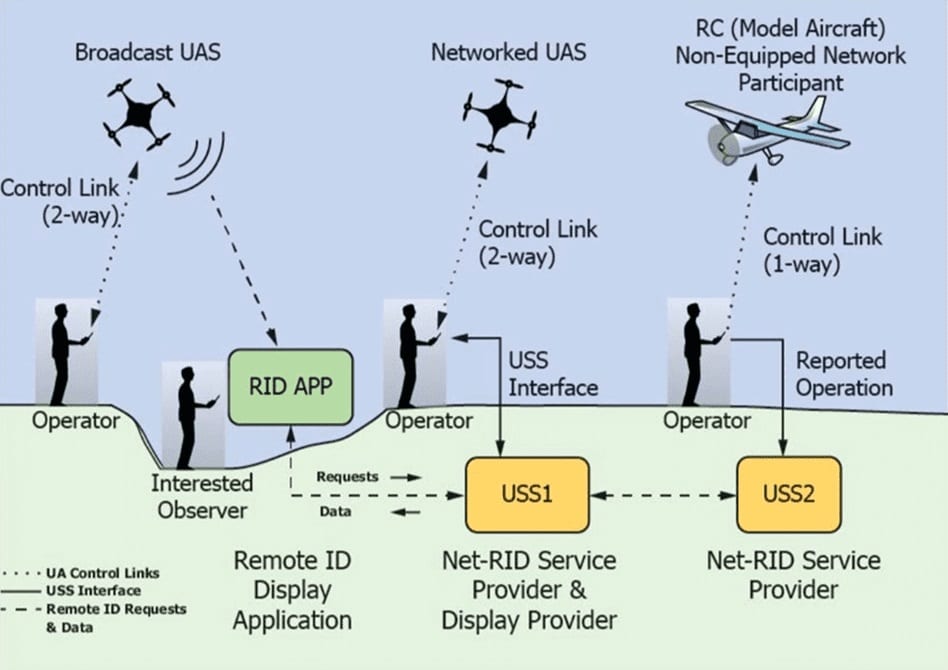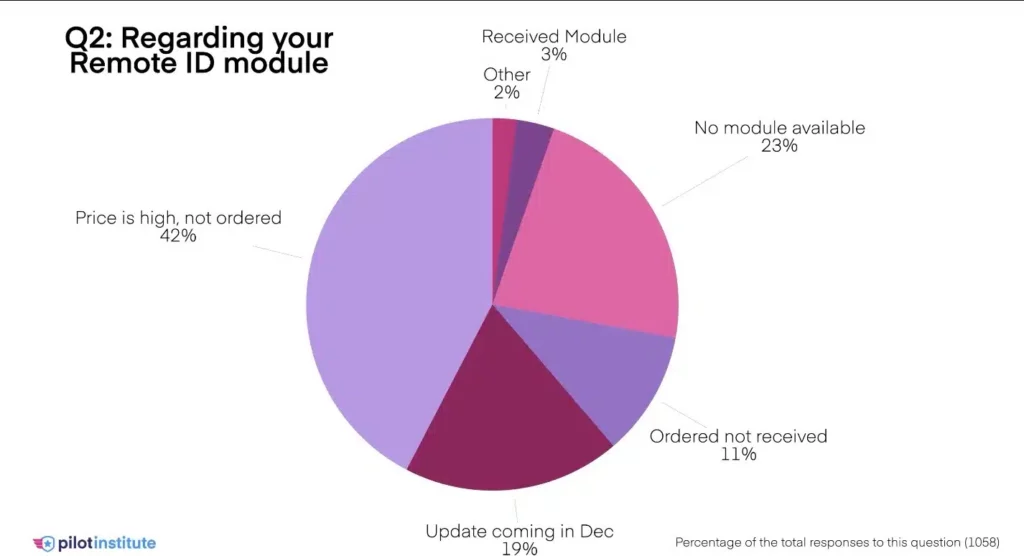FAA Remote ID Deadline for Drones May Be Delayed Due to Supply Chain Issues (UPDATED)
UPDATE: According to a video by Pilot Institute, the FAA has decided to delay enforcement of the Remote ID mandate until March of 2024. Officially, the mandate will still go into effect on September 16, 2023, but the agency will use “enforcement at their discretion.” Whatever that means.
The Federal Aviation Administration (FAA) is considering delaying the deadline for drone operators to comply with its remote identification (Remote ID) rule until 2024, due to ongoing supply chain issues with Remote ID modules.
A Little Background
The Remote ID rule, which went into effect in March 2021, requires all drones weighing 250 grams or more to be equipped with Remote ID capabilities or to be operated within an FAA-Recognized Identification Area (FRIA). FRIAs are designated areas where drone operators are exempt from the Remote ID requirement, but only if they have obtained FAA approval.

The FAA had originally set the deadline for drone operators to comply with the Remote ID rule for September 16, 2023. However, due to the ongoing supply chain issues, many drone manufacturers have been unable to produce enough Remote ID modules to meet demand.
Moreover, the proposed mandatory remote ID modules are costly, with an average retail price of between $120 and $300. One company, however, has been able to bring the cost down to as little as $39.
Another challenge is the amount of weight that adding a remote ID module will have on the overall flight performance and capacity of a UAV. Some drones come just under the required 55g weight limit for registering drones with the FAA. By mandating the remote ID system, the FAA would force many older drones to be reclassified.
Survey Says
A recent survey by drone educator Pilot Institute, found that a significant number of drone pilots are concerned that they will not be able to comply with the FAA’s Remote ID deadline of September 16, 2023, due to supply chain issues with Remote ID modules.
The survey found that 70% of respondents said that they are not confident that they will be able to comply with the Remote ID deadline, and 40% said that they are likely to fly their drones without Remote ID if the deadline is not delayed.

The survey also indicated price as an ongoing concern by pilots to comply with the FAA mandate. The survey indicated that 42% cited price as a concern and haven’t ordered one, while 53% believe they’ll be forced into non-compliance due to the cost to adopt a remote ID system.
Pilot Institute CEO Jim Williams said that the survey results are “a clear indication that the FAA needs to delay the Remote ID deadline to give drone manufacturers and operators more time to comply.”
“The supply chain issues are real, and they are making it difficult for drone operators to get their hands on Remote ID modules,” Williams said. “If the FAA persists in the current deadline, it will force a great deal of pilots into non-compliance, which could undermine the safety and security of drone operations.”
The FAA has acknowledged the supply chain challenges and is considering delaying the Remote ID deadline. However, the agency has not yet made a final decision.
The Pilot Institute survey provides further evidence that the FAA’s Remote ID deadline is unrealistic, given the current supply chain challenges. If the FAA does not delay the deadline, it is likely that a significant number of drone operators will be forced to fly their drones without Remote ID, which could pose a safety and security risk.
Impact of a Remote ID Delay
A delay in the Remote ID deadline would have a number of implications for the drone industry. First, it would give drone manufacturers more time to produce Remote ID modules and make them available to drone operators. Second, it would give drone operators more time to purchase and install Remote ID modules on their drones.
However, a delay in the Remote ID deadline would also have some negative consequences. For example, it would delay the FAA’s ability to fully implement its Remote ID program and would make it more difficult to ensure the safety and security of drone operations. Additionally, a delay in the Remote ID deadline could discourage some drone operators from investing in new drones, as they would be unsure when they would need to comply with the Remote ID rule.
What Drone Operators Can Do
Drone operators who are concerned about the potential for a Remote ID delay should take the following steps:
- Monitor the FAA’s website and social media channels for updates on the Remote ID deadline.
- Contact their drone manufacturer to inquire about the availability of Remote ID modules.
- Start planning for the eventual installation of Remote ID modules on their drones.
Drone operators should also be aware that the FAA may still require compliance with certain Remote ID requirements, even if the deadline is delayed. For example, the FAA may require drone operators to comply with Remote ID requirements for drone operations in certain airspaces or for drone operations that involve certain types of cargo or payloads.
Conclusion
The FAA’s Remote ID rule is an important step towards the safe and secure integration of drones into the national airspace. However, the ongoing supply chain issues are making it difficult for drone manufacturers to produce Remote ID modules and for drone operators to purchase and install them.
The FAA may have to delay the Remote ID deadline until 2024 to give drone manufacturers and operators more time to comply with the rule. However, even if the deadline is delayed, it is unclear if operators will be able to comply in a timely manner in the near future and the FAA should work with the community to develop a fallback plan as a stopgap until the issue is resolved so that safe and secure drone operations may continue.
[Source: DroneXL]




